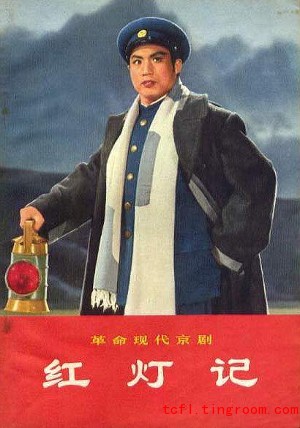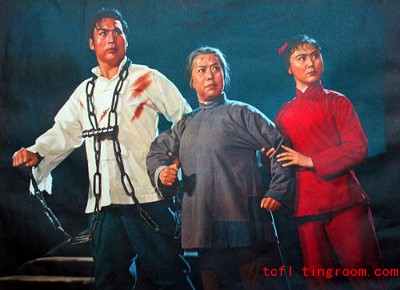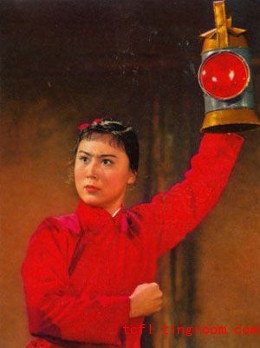It is hard to watch the 8 model dramas today since the roles in the play were depicted so “unreal and unnatural”. Good characters move between heroic poses that keep reminding me of a puppet, instead of a real person. Bad characters are purposely uglified to show how miserable and pathetic they are. The story itself might not be a bad one. But with all these deliberately set up “stereotype performance”, the play is full of weird taste.
History is history. 10 years of Culture Revolution was a tragedy of a nation that China can never forget. It has always been a heavy topic to talk about even after so many years.
In this series of post, I will collect the stories and images of all 8 model dramas and translate the story into English. They might can help my readers to have a peek into that period of Chinese history.
《
The story happened in the Second Sino-Chinese War in 1939. when Japan invaded North East of China. At the same period of time, World War II started in Europe.
The family of three lived in a village in the north east area. Grandma Li, father Yuhe Li, and daughter Tie Mei.
Yuhe Li was a secret member of the Party. He received a mission to receive and send out an important telegram to the headquarter of the Party in the mountain. When he met his contact person that carried the telegram, the Japanese followed and chased them. Officer Wang, another member of the Party covered them to escape. However, Li’s contact person got wounded in the crossfire and died after passing on the telegram to Li.
Jiu Shan, the leader of the Japanese army who was chasing them captured officer Wang. Wang turned himself into a traitor soon after being arrested. He sold what he knew, which led Jiu Shan to arrest Yuhe Li. Li endured cruel torture and didn’t give away wherabouts of the telegram.
With a calculated mind, Jiu Shan turned his head to Li’s family hoping to find a break through there. He visited Grandma Li and Tie Mei with gifts in hand. He tried to persuade Grandma Li to give away the telegram so her son could live. She refused.
When Jiu Shan left, Grandma Li told Tie Mei that the three of them actually had no blood bond. They were all survivors of a massacre that happened long time ago. Tie Mei was very little at that time. Yuhe Li and Grandma Li decided to act as a family to raise Tie Mei. Grandma Li told Tie Mei the real identity of her father Yuhe Li was a member of the Party (the Party was still underground at that time). Tie Mei was inspired by the truth.
The next day, Jiu Shan arranged Yuhe Li to reunite with his family. Jiu Shan set it up so that he could capture important leads that Yuhe Li might reveal to his family. However, his plan was not successful. Infuriated, he ordered his soldiers to bring the whole family to the execution ground.
After a few gun shots, Yuhe Li and Grandma Li got killed, but Tie Mei lived. Jiu Shan wanted her to live so he could follow her to discover the telegram.
Tie Mei remembered his Dad’s and Grandma’s words and acted carefully. Eventually, with the help of other members from the Party, she finally sent out the telegram to the headquarter and became a member of the Party herself.
-END-






